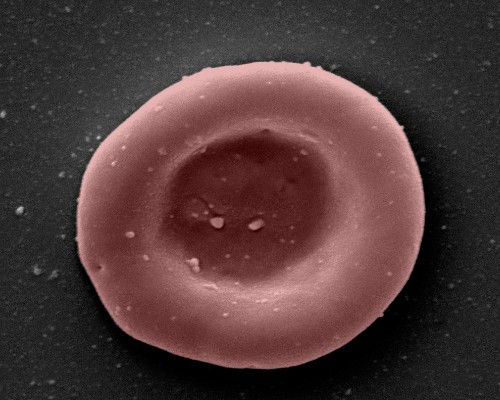The first clinical trial in history to 'transfuse' red blood cells grown in the laboratory is underway

Blood transfusions are indispensable for the treatment of people who are ill and unable to produce blood, or who have suffered a large amount of bleeding due to surgery or accidents, but they pose problems such as the risk of complications. To improve such problems, the world's first clinical trial of laboratory-cultured red blood cell transfusion has begun.
First ever clinical trial of laboratory grown red blood cells being transfused into another person - NHS Blood and Transplant
NHS Blood and Transplant (NHSBT), which has jurisdiction over blood transfusion and organ transplantation in the United Kingdom's National Health Service (NHS), announced on November 7, 2022, in collaboration with the University of Bristol and the University of Cambridge, red blood cells cultured from donor blood. announced that the 'RESTORE Randomized Controlled Clinical Trial' has been started.

by NSHBT
This is the first time in the world that lab-grown red blood cells have been transfused to another person in a clinical trial, and if the trial proves to be safe and effective, it could prevent
The project will use stem cells isolated from the blood of healthy donors to the NHSBT, and the trial will transfuse the stem cells into red blood cells to at least 10 participants. The dosage varies for each participant, but a very small amount of ``mini blood transfusion'' of 5 to 10 ml, which is equivalent to 1 to 2 teaspoons, will be performed. The focus of the study will be on which cells last longer, comparing lab-grown cultured red blood cells with standard donated red blood cells.
Regular blood transfusions will be required if laboratory-grown red blood cells are proven to last longer than conventional blood transfusion cells, which contain red blood cells that have been produced in different stages of life. It is possible to reduce the frequency of blood transfusions in sick patients. This would help alleviate problems that can lead to serious complications, such as iron overload from frequent blood transfusions.

Two participants in the trial have already received transfusions of laboratory-grown red blood cells, and so far no adverse side effects have been reported, and both participants are in good health. However, detailed information, such as the identities of participants who received blood transfusions, was withheld to maintain the ' blinding ' of the study.
Rebecca Cardigan, head of component development for the NHSBT and lecturer at the University of Cambridge, said: 'We're now able to grow enough red blood cells to medical grade to start this trial. is very exciting, and I look forward to seeing the results of the trials and whether the cultured red blood cells outperform traditional donated red blood cells.'
Related Posts:
in Science, Posted by log1l_ks







